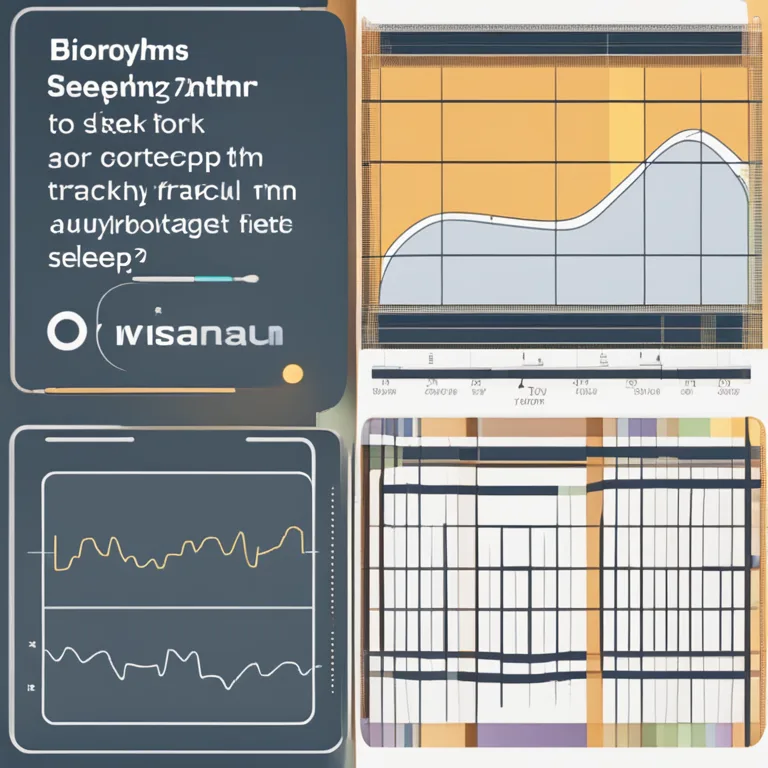
The Impact of Biorhythms on Sleep Quality
Delve into the interplay between biorhythms and sleep, and learn how they influence sleep quality and patterns for better rest.
article by Adrian Wallace
The Concept of Biorhythms
Biorhythms are an intrinsic timing system thought to regulate various physiological processes within the human body. According to the theory, there are three primary biorhythm cycles: the physical, emotional, and intellectual. Each of these cycles waxes and wanes over different periods: the physical every 23 days, the emotional every 28 days, and the intellectual every 33 days. The ongoing study of these rhythms suggests that aligning our activities with the optimal points in these cycles could lead to improved health and well-being.

Biorhythms and Sleep Cycles
Sleep is one of the most significant areas influenced by biorhythms. To achieve restorative sleep, one must consider the various cycles and how they interact with circadian rhythms—the 24-hour biological clock that dictates sleep-wake patterns. The interplay between biorhythms and circadian rhythms can affect the quality and duration of a person's sleep. When these rhythms are in sync, individuals often experience high-quality, uninterrupted sleep.

Tracking Biorhythms for Better Sleep
Advancements in technology have made it easier to monitor personal biorhythms. Numerous apps and wearable devices can now track sleep patterns, often indicating how well an individual's biorhythms align with their sleep habits. By utilizing such technology, one can identify the best times to sleep and wake, potentially leading to more effective rest.

Adjusting Habits to Sync with Biorhythms
It's not just about knowledge; it's also about action. Adapting sleeping habits to align with one's biorhythms can be beneficial. This could mean engineering a bedtime routine that harmonizes with the peak times in your physical cycle or avoiding emotionally stressful activities when the emotional biorhythm is at a low point to reduce sleep disturbances.

The Role of Light Exposure
Proper exposure to light is another crucial factor in synchronizing our biorhythms. Natural sunlight or artificial lighting mimicking the solar cycle can help maintain a healthy circadian rhythm, thus potentially benefiting one's overarching biorhythm cycles. Smart home technologies now offer lighting solutions that adjust throughout the day to support our natural biorhythms and promote restful sleep.
The Science of Sleep and Biorhythms
Current sleep science research continues to investigate the nuances of how biorhythms affect sleep quality. Studies are exploring the molecular and genetic underpinnings of biorhythms to offer insights into how they could be manipulated to treat sleep disorders and improve overall health.
Lifestyle Choices and Biorhythmic Harmony
Beyond technology and light exposure, lifestyle choices play a vital role in harmonizing biorhythms with sleep patterns. This includes diet, exercise, and stress management. By taking a holistic approach to aligning biorhythms, individuals can forge a path to more restful nights and energized days.
Published: 12/28/2023
Modified: 12/28/2023
More predictions
Come back here soon to learn more about yourself and your future


Unlocking Biorhythm Calculations
Learn the ins and outs of measuring your biorhythms to align with your natural energy cycles for enhanced well-being and decision-making.


The Core of Biorhythm Theory
Delve into the core of biorhythm theory, a concept that suggests our daily lives are influenced by natural physiological cycles.


The Mechanics of Biorhythms: A Comprehensive Guide
Discover how biorhythms influence your daily life with this detailed guide to the rhythms that govern our physical, emotional, and intellectual states.